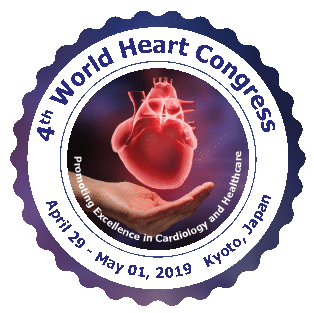Wilawan Thirapatarapong
Mahidol University, Thailand
Title: Effectiveness of incentive spirometry on inspiratory muscle strength after coronary artery bypass graft surgery
Biography
Biography: Wilawan Thirapatarapong
Abstract
Background: Although the use of Incentive Spirometry (IS) with Deep Breathing Exercise (DBE) is widely used in clinical practice in patients who have undergone Coronary Artery Bypass Graft (CABG) surgery, the effect of this combination therapy has not been conclusively elucidated. The aim of this study was to investigate the effect of post-operative combined IS and DBE versus DBE alone on inspiratory muscle strength following CABG.
Method: The randomized clinical trial was conducted in patients scheduled to undergo CABG surgery at the Siriraj Hospital. The study group received IS and DBE and the control group received DBE only. Maximal Inspiratory Pressure (MIP) before surgery and at day 4 after surgery was assessed by respiratory pressure meter. Secondary outcomes, including post-operative pulmonary complication and duration of post-operative hospitalization, were obtained from medical records.
Result: 90 patients were included, with 47 and 43 patients assigned to the study and control groups, respectively. In both groups, there was a significant reduction in MIP from pre-operative baseline to post-operative day 4. However, the MIP in the IS group had a significantly smaller reduction in MIP than the reduction in the control group [33.0±23.2% vs. 47.2±20.1%, respectively; p=0.006, 95% CI (3.9-23.3)]. There was no difference between groups for the secondary outcomes.
Conclusion: Patients in the study group had significantly better recovery of inspiratory muscle strength on day 4 post-CABG than patients in the control group. There was no significant difference between groups for either post-operative pulmonary complications or length of hospital stay
